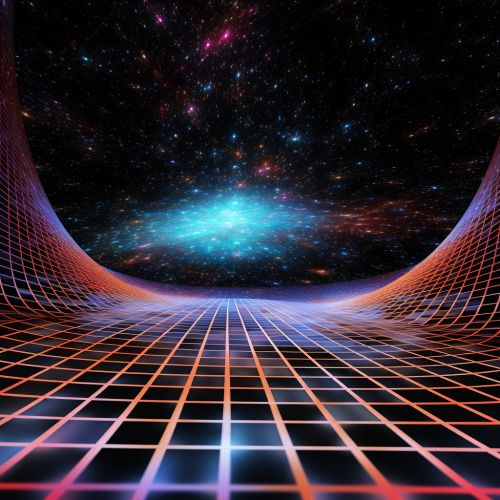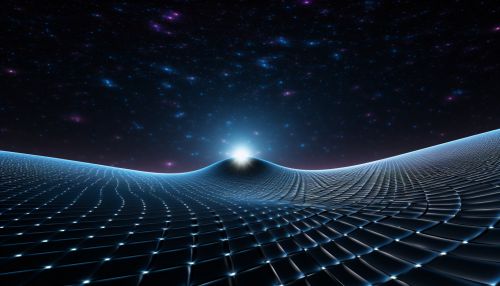Relativistic Effects in Space-Time
Introduction
Relativistic effects in space-time are a fundamental aspect of modern physics, specifically in the realms of special relativity and general relativity. These effects become significant when dealing with velocities approaching the speed of light, or in the presence of strong gravitational fields.


Special Relativity
Special relativity, proposed by Einstein in 1905, describes the physics of motion in the absence of gravitational effects. It introduced the concept of space-time as a unified entity and postulated two fundamental principles: the principle of relativity and the invariance of the speed of light.
Principle of Relativity
The principle of relativity states that the laws of physics are the same in all inertial frames of reference. This means that there is no experiment that can distinguish between a state of uniform motion and a state of rest.
Invariance of the Speed of Light
The invariance of the speed of light postulates that the speed of light in a vacuum is the same for all observers, regardless of their state of motion or the state of motion of the source of light. This speed is approximately 299,792 kilometers per second.
Time Dilation
One of the most intriguing consequences of special relativity is the phenomenon of time dilation. This effect describes how a clock moving relative to an observer will be seen to tick slower than a clock at rest with respect to the observer.
Length Contraction
Another relativistic effect is length contraction, which states that an object in motion will appear shorter in the direction of motion to a stationary observer. This effect, like time dilation, becomes significant only at speeds close to the speed of light.
General Relativity
General relativity, also proposed by Einstein, is a theory of gravitation that describes gravity as a curvature of space-time caused by mass and energy. This theory predicts several relativistic effects, including gravitational time dilation and gravitational redshift.
Gravitational Time Dilation
Gravitational time dilation is an effect of general relativity that causes a clock in a strong gravitational field to run slower than a clock in a weaker gravitational field. This effect has been confirmed by numerous experiments and observations.
Gravitational Redshift
Gravitational redshift is another effect predicted by general relativity. It describes how light or other electromagnetic radiation originating from a source in a strong gravitational field will be redshifted, or shifted towards longer wavelengths, when observed in a weaker gravitational field.
Conclusion
Relativistic effects in space-time are fundamental to our understanding of the universe. They have been confirmed by numerous experiments and observations, and they have profound implications for our understanding of space, time, and gravity.
